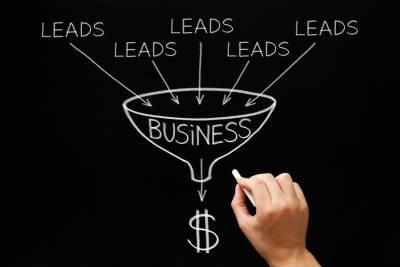In business, there are few things more important than leads. A lead is simply someone who is interested in your products and that might mean that they have shown an interest by simply visiting your website, or it might mean that they have already bought from you in the past. In other words, these are people you can sell to – who have given you permission to contact them and indicated that they want to know more about your brand.
A lead is someone that your business can potential sell to and this will typically mean someone that has previously shown an interest in your product, or who has invited you to contact them by handing over their details.
A lead can still come in a number of different forms though, and in business we often refer to the lead lifecycle to explain how a lead can change shape over the course of your interaction with them.
Types of lead include:
- Cold leads
- Warm leads
- Qualified leads
A cold lead is the most basic type of lead. This is someone that you have previously established contact with and who fits the target demographic of who you want to sell to. However, that will likely be the only thing that makes this person a lead. They haven’t shown interest in your brand specifically and they aren’t expecting your call. This is what we mean by cold calling: calling cold leads.
A warm lead meanwhile is someone that has shown some interest. You’ve had interaction with them and they might have demonstrated that they are potential buyers by spending lots of time on one of your checkout pages for instance.
Finally, a qualified lead is someone that has:
- Bought previous
- Shown interest in a specific item
For instance, if someone has messaged you to ask about the availability of a product, or if they have pre-ordered, then they are a qualified lead.
Your job is to take someone from being a cold lead, all the way to becoming a qualified lead.
Information to Collect
When you start growing your list of leads, you are going to need to make sure that you have as much data on each lead as possible. This will help you to market to them and to gain a better understanding of the data as it pertains to your business.
Here are some things to try and collect when acquiring new leads:
Gender
Getting the gender of the members of your mailing list is a fairly basic requirement, and something that you should be able to obtain without raising too many eyebrows. This is then highly useful for ensuring that you aren’t wasting our time with any gender-specific products – allowing you to message only women or only men where appropriate.
Age
The age of your mailing list will perhaps be even more telling than the gender. This will help you to identify what point in their lives your leads are likely to be in, thereby identifying the kinds of offers etc. that they may be interested in. Make sure of course that you update this information regularly too – over time as your leads grow older they may become more suited to particular products. For instance, if you get some teenage leads, you might wait a few years before promoting your mortgage offers to them.
You can also combine age and gender in order to make some more educated guesses about your leads – age and gender can come into play when you sell bridal magazine subscriptions for instance.
Income
If you can get your leads to share some basic information regarding their salary with you, then you can identify whether or not they can afford particular products. Again, you can also take this one step further though – most salaries are likely to go up over time, so if they aren’t in the right bracket now you might well opt to contact them later on when they possibly will be.
